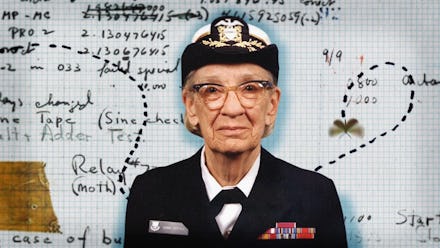A New Documentary Nails How Terrible It Is for Women in Tech — and How to Fix It

Breaking news to absolutely no one: The tech world is not kind to women.
Female programmers are sorely underrepresented in tech. Women are afraid to speak up about the discrimination they see because they worry about their jobs. Even CEOs of giant media companies who do speak up, like current Reddit CEO Ellen Pao, see their complaints minimized. It's a cancerous problem affecting one of the fastest-growing industries in the world.
Luckily, there are women fighting back. A new documentary called Code: Debugging the Gender Gap, currently screening at the Tribeca Film Festival, charts efforts to make the tech world better to female programmers. The film draws an often sad picture of said world, but ends on a hopeful note for the future.
Step one towards fixing the problem is acknowledging it. That doesn't just mean in broad terms, but in specifics: cold, hard numbers. That's what Pinterest engineer Tracy Chou sought to do when she created women-in-software-eng, a Github site that allows users to submit actual numbers of female engineers at different tech companies. The percentages, found on this Google spreadsheet, are shocking.
Those numbers are exactly why different groups are working at every level to fix the problem. An educational app called Kodable seeks to teach kids of any gender the basic ideas that lead to successful programmers at a young age. Organizations like Girls Who Code, Black Girls Code and Code for Progress seek to boost female and minority programming voices through education and empowerment. Code depicts several of these groups as part of a greater trend — by working to make girls in tech feel more empowered, the tech world will slowly but surely open up.
Yet Code argues the problem is deeper-seated. Women aren't welcome in tech no matter how much they're supported because the culture is so clearly not made for them. After some years pass, many hit a ceiling beyond which they cannot get promoted. This is thanks to unfriendly work environments and superiors who hire men more than women.
The efforts to even the playing field need to be even more widespread. Code highlights one school in particular, Harvey Mudd College, that successfully and dramatically increased the number of women enrolled in computer science classes. It was a simple strategy: Make classes less intimidating and more encouraging. The percentage of female computer science majors quadrupled.
Computer science isn't required in school like it is in countries like Israel, the United Kingdom and South Korea. In fact, in 25 states, computer science doesn't count as a credit towards graduation. Making such classes part of a regular school curriculum could do much to increase the number of women involved. Systemic changes like that are what's really needed to cause change.
It's encouraging to see great work done on so many levels, but there's plenty still left to do. A documentary like Code can only do so much. Its power, however, is in the incredible women who have found success in tech despite overwhelming odds who speak during the film. Seeing them and seeing their work is a clear sign that no matter how difficult it is to effect change, it's worth it.
Learn more about Code: Debugging the Gender Gap at its website.